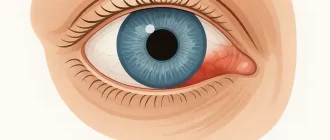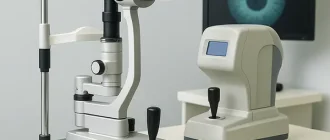A person’s ability to function normally in the world may be severely impaired by cataracts, which obscure the eye’s natural lens. Cataracts have a way of making the world seem dull and hazy, whether it’s because of problems appreciating nature’s wonders, reading your favorite book, or recognizing the faces of those closest to you.
Nonetheless, despite the fact that cataracts make daily life difficult and deprive us of enjoyment, the debate over whether or not they may lead to blindness persists.
Who is at risk of developing cataracts?
Cataracts are most common in the elderly since their development starts about age 40 and is a long process. Cataract surgery may not be necessary for many individuals until they are 60 or older. Cataract risk factors include genetic predisposition, alcohol use, prolonged exposure to sunlight, and improper treatment of preexisting illnesses, including diabetes and cardiovascular disease. Regular eye checkups, limiting alcohol intake, protecting eyes from UV rays, and managing preexisting diseases are all important ways to lower your risk of getting cataracts.
What are the symptoms of cataracts?

- Vision blurring or haziness: cataracts may diminish your ability to see clearly, especially at close range.
- Colors that appear faded: As a cataract develops, colors may seem less vibrant, making it harder for you to tell apart between different shades.
- When you have cataracts, your eyes are more sensitive to light, which can cause discomfort or glare in bright settings.
- Having trouble with night vision makes activities like driving more difficult for people with cataracts.
- A double image may appear in the affected eye due to a cataract, but this condition, known as “double vision,” may get better as the cataract develops.
- Cataracts can cause blurred vision, which can lead to the need for regular updates to your eyeglasses or contact lens prescription.
- Challenges with regular activities: As cataracts progress, it can become difficult to do things like read or watch television.
If you’re experiencing any of these signs, it’s important to get an eye exam to rule out cataracts and other eye problems.
Can cataracts lead to blindness?
Clouding of the lens of the eye, known as a cataract, may lead to permanent vision loss if not corrected. The disorder, which causes blurred vision and trouble focusing on objects, is brought on by the breakdown of proteins in the lens. More than half of all Americans get cataracts by age 80, since they are so often associated with old age.
Cataracts may form gradually, and many people are able to cope with the disease through changes to their lifestyle and the use of corrective lenses; nonetheless, surgical intervention is required to avoid complete loss of vision.
Cataract surgery involves removing the cloudy lens and replacing it with an artificial one to improve eyesight.
How long does it take for cataracts to cause blindness?
Cataracts cause blindness if they aren’t corrected. Cataracts grow at different rates in different people, but they often start showing up around age 40 and keep getting worse over time. Cataracts may cause mild visual impairment in some people and complete blindness in others. Cataracts may affect eyesight gradually over time, sometimes over many years.
Nevertheless, the pace and degree of vision loss might vary based on factors including age, general health, and the specific form of cataract present. Blindness from cataracts may be avoided with early diagnosis and treatment, such as cataract surgery.
How do cataracts impact vision?
Cataracts are a degenerative eye condition that gradually blurs vision by clouding the eye’s natural lens. This impairs vision at all distances because less light reaches the retina. Cataracts are a common cause of blurred or double vision, as well as glare and photophobia. They may also alter one’s perception of color, making some hues seem muted or washed out.
Driving and reading may become more challenging as the disease progresses. Failure to cure cataracts might result in permanent vision loss. Knowing the symptoms of cataracts and seeking medical attention promptly is crucial for maintaining eye health.
When is cataract surgery necessary to prevent blindness?
Cataract surgery is necessary when the visual impairment caused by a cataract interferes with everyday life. Cataracts form when proteins in the lens of the eye clump together, a condition that becomes more common with age. In the worst circumstances, this may lead to complete blindness or at least severe visual impairment.
Cataracts develop slowly, so it’s easy to miss the warning signals. Non-surgical therapies, such as prescription glasses or brighter lighting, are helpful up to a certain point but are of little use after cataracts have progressed. It is now suggested that cataract surgery be performed. A clear artificial intraocular lens is inserted in lieu of the clouded natural lens during this surgery.
Cataracts, which may cause blindness if left untreated, can be detected early with the help of frequent eye examinations with a professional ophthalmologist.





